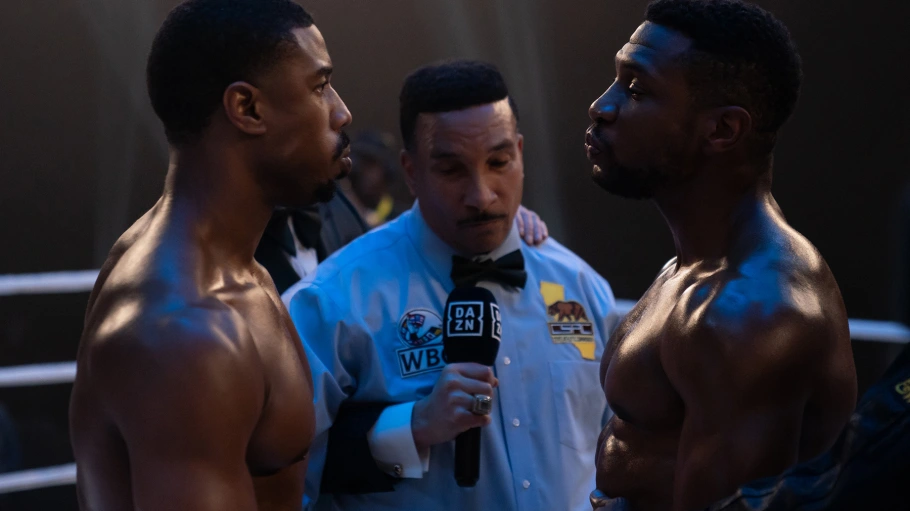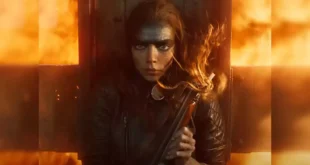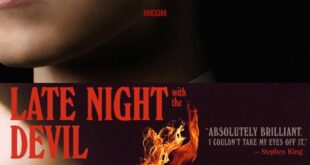Creed III provides an opportunity for Michael B. Jordan to flex his muscles as a filmmaker, and that he does in his stylish and energetic directorial debut. Working with a screenplay by Ryan Coogler, Keenan Coogler, and Zach Baylin, Creed III is the third film in the Creed reboot series, but the first one that feels it’s entirely about Adonis Creed. This is because of the notable absence of Sylvester Stallone in both the writing and acting categories of Creed III for whatever reason. There’s a dispute about the character rights of Rocky; the point is the film works beautifully without him.
I enjoyed Stallone’s performance in Creed (2015) but felt he weighed down Creed II a bit, despite a touching ending where Rocky visits his estranged son. The first Creed was an excellent opportunity to kill the character off and pass the torch. We are finally there now with Creed III, a film that merely mentions Rocky in passing. While I’m disappointed because of contract disputes, Rocky not there allows Adonis to grow more as a character.
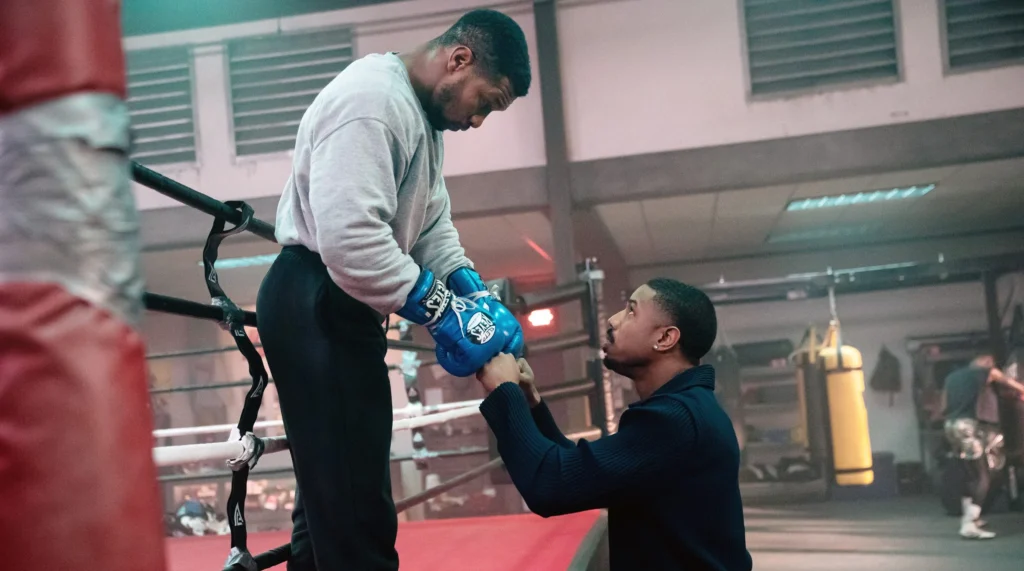
Creed III begins with a stellar sequence set in 2002. It follows Adonis as a teenager and his friendship with amateur Golden Gloves champ Damian “Diamond Dame” Anderson, a few years older. It’s interesting because it shows a less flattering side of Adonis as a kid, fixing fights and impulsively attacking a man named Leon. It’s a stark reminder that Adonis’s childhood was rough, in and out of juvenile detention systems, and violent, a theme returned to later in the film with Creed’s daughter Amara. After a violent bout Amara (who is deaf) has in school, Adonis looks to harness that to start training her daughter to be a fighter. It’s an interesting setup for other films in the franchise.
Adonis Creed is retired after successfully defending his title to focus on family and running Delphi Boxing Academy with his coach Tony “Little Duke” Evers Jr. (a superb Wood Harris). Together they’re promoting a protege world champion Felix “El Guerrero” Chavez, in a match against Viktor Drago, the main adversary in Creed II, but now he and Adonis are friends. Things are going relatively smoothly until Dame reappears after 18 years in prison. His ambitions were still the same as when he was younger, to be the boxing champion, which he felt he deserved a shot at. Adult Dame is played by Jonathan Majors in yet another impressive performance, coming off of Devotion and being one of the few highlights of the latest Ant-Man.
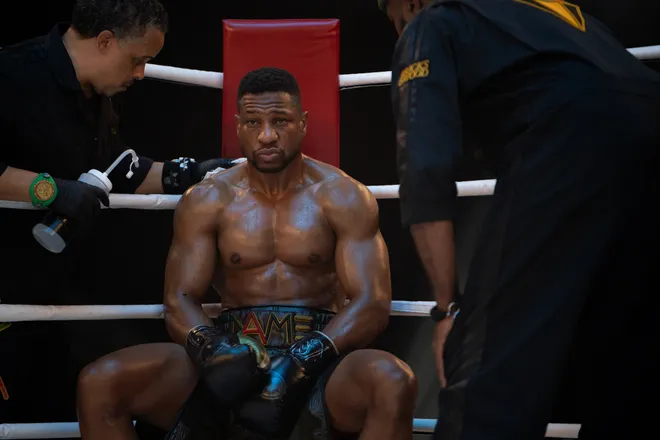
Dame is an interesting character because he forces Adonis to examine his past. This leads him to experience guilt, fear, and anger. Dame blames Adonis for running out on him. Indeed, Adonis doesn’t even recognize his old friend at first. It’s here where the screenplay has to rely on the old sports cliches and cliches for dramatic advancement. Dame is dangerous in the ring. He even hires someone to break Drago’s hand, but Adonis gives him a title shot against Felix, who he destroys.
Despite screenplay inconsistencies, what keeps things moving is Michael B. Jordan’s assured direction. The boxing scenes are filmed intimately and up close with attention to fight detail and how Adonis Creed fights. I’ve never boxed before. I would have no idea if this were accurate, but it works cinematically, and that’s all that matters. The inevitable final bout between Creed and Dame features an extended fight sequence inspired by Jordan’s love of anime. He cited anime series like Naruto, Hajime No Ippo, and Dragon Ball Z as heavy influences for the fight choreography. I don’t have a familiarity with anime, but I love that someone is bringing a different philosophy to the fight choreography. The boxing scenes are awe-inspiring, and from a pacing standpoint, clocking in at just under two hours, Jordan keeps things moving as a filmmaker.
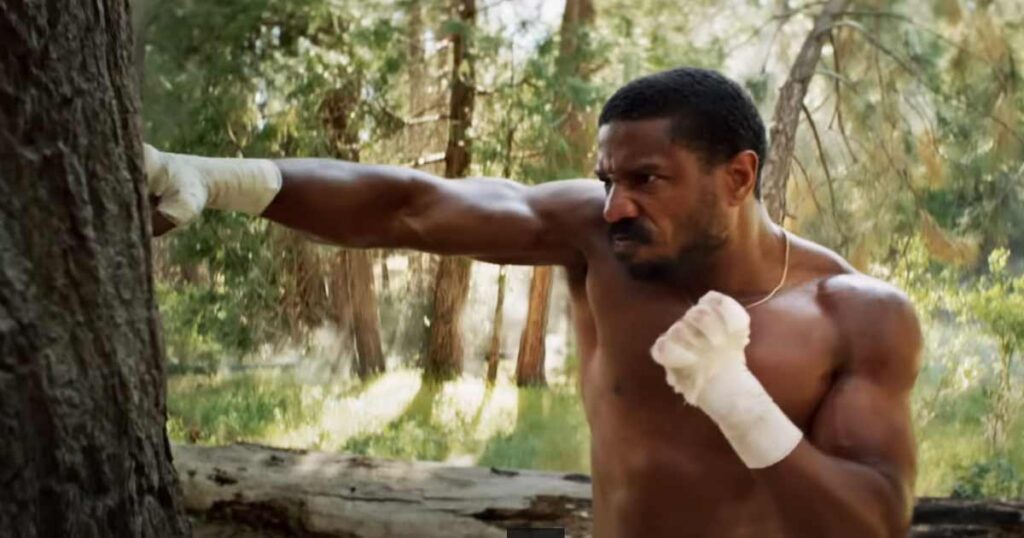
Adonis’s story has finally come full circle in Creed III. It’s about taking out anger violently and the ramifications of doing that in an unhealthy way. Luckily the film is adept at human drama, which separates Creed III from Creed II. It has some surprisingly deep themes while also being fun. The most vital aspects are Jordan’s direction, and Jonathan Majors’s in the villainous role. This time to me more impressive than in Quantumania. I’m still interested in where this franchise goes and the films Jordan directs in the future.
*** out of ****
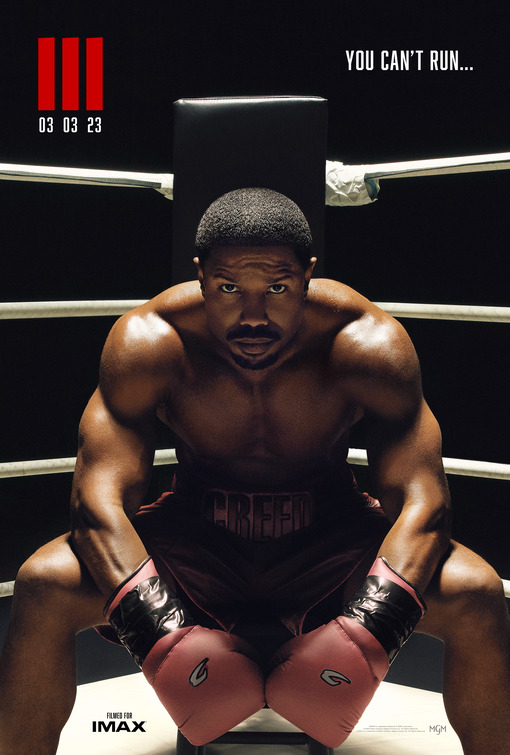
 Movie Finatics The Place for Movie Lovers
Movie Finatics The Place for Movie Lovers
